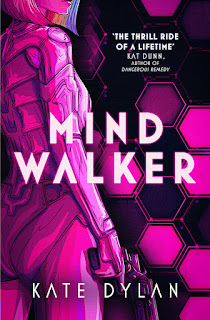Jeffe told the perfect Dustin Hoffman and Laurence Olivier story earlier this week. I'm happy to report the incident DID happen, according to Dustin Hoffman.
Riffing off of what Jeffe talked about, I've come to say the story gives us a glimpse into the two distinct acting traditions these two men came from. Hoffman is a Method actor. It's a very American (by way of Russia) way to approach veracity in acting. The short theory behind it is that only honesty reaches through the divide between actor and audience. The actor must feel whatever the character feels or else the character won't read as true to the audience. Olivier came from the British acting tradition which, based as it is, so firmly in Shakespeare, focuses on technique. Another infamous Olivier quote goes something like "It isn't my job to feel anything. It's my job to make you feel what I want you to feel.' This one likely is apocryphal, but I can't prove that as a search for it took me straight to one of those 'hi-jack your box attempt' websites. It was just a story that got told at acting school. Since it shores up the technique (I don't feel) versus Method (I feel everything) acting arguments, we'll accept it. The theory to technique is that by mastering text, subtext, vocal range, and physicality, a technical actor can evoke emotional reaction in an audience.
The different schools are about establishing honesty. Modern audiences don't want to see actors acting, very much like readers don't generally want author intrusion in stories. In both cases, viewers and readers long to be swept up in the story as if they were standing in the protagonist's shoes themselves. To bring viewers and readers as close to the work as humanly possible, actors and writers must play on some deep-seated psychological truths about humans.
Humans are deeply empathetic creatures. Whether we want to be or not, we are social animals. Our survival as a species relies on our ability to unconsciously and universally identify emotion from the faintest shifting of an expression or body language. This skill is available to us as infants. It's that important. More interestingly, for a brief moment, when we identify an emotion in someone else, we mirror it as if by trying on the expression we see in someone else confirms for us what feeling is associated with it. Performers of all kinds learn to leverage it.
Can you see where Method and technique come at exploiting human emotional hot buttons from different directions? Method makes you mirror the feeling you see the actor experiencing. A technical actor has the physical, vocal, and body language skills so well rehearsed that they can choreograph the exact sequence of techniques to hit so as to elicit the emotions they want from an audience.
This is a lot of words to come at how I approach emotion in a novel. My only goal is to make emotion clear, clean, and cutting. If my character is laughing, I want you smiling along with her. If she's terrified, I want you looking over your shoulder. Method - me feeling the feelings and then jotting them down is fast and easy. However, it's also easier to muddy the emotions and it's easy to get lost in the emo. Also, it's a tough lesson, but just because I feel the fear, it doesn't mean I'm going to do a good job of communicating it to readers. Actors have faces and bodies for audiences to read. Writers have to build those things before readers can be impacted by them. Technique - word choices, paring complex emotion stacks down to bare bones, describing clear physical cues, sentence length, and white space - offers a tool kit that helps me manipulate readers into feeling what I need them to feel.
It will be no surprise to you that I feel like both are necessary. The trick with Method work is to use it to call up a reminder of a feeling. Technique then catalogues the details. Where do I feel that in the body. What does it feel like? What's my breath doing? What's the sensation? Where? What happens if it heightens? What does it feel like as it drains away? It's interesting to me that every human on earth may experience fear in personal and specific ways, but the experience is so recognizable, that even our 6 month old infants can identify and mirror it. That means I can give you my personal experience of emotion in a story and you will experience your version of that emotion - not mine. And I don't care. My job is not to make you feel what I feel. My job is to trigger you to experience your own emotions with the story I'm telling. My emotions will ring hollow to anyone but me. A story only comes to life if the emotion I write accesses your emotions. That's the only way a book can read as true to a broad audience.
So the answer is both. Both is good. I do need to feel. Some. I need to not feel enough that I can remain critical and objective enough to leverage solid technique.





.jpg)



